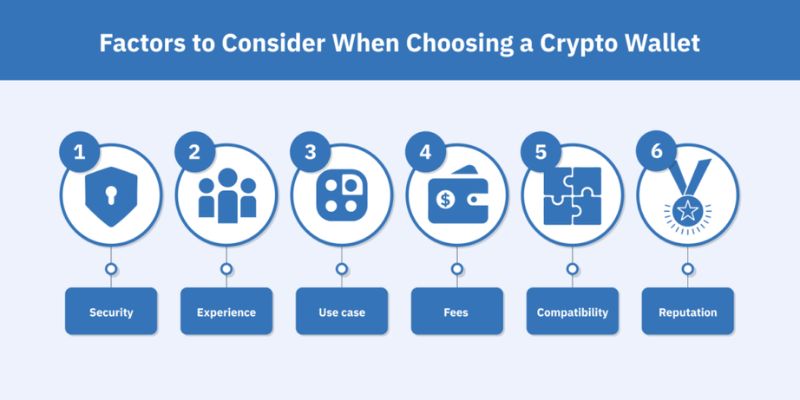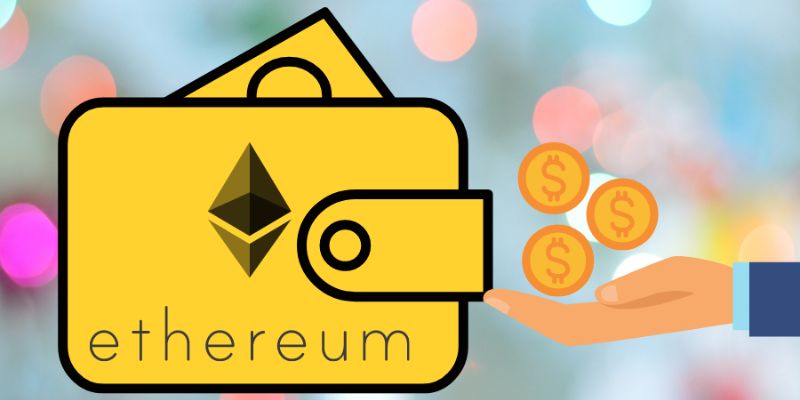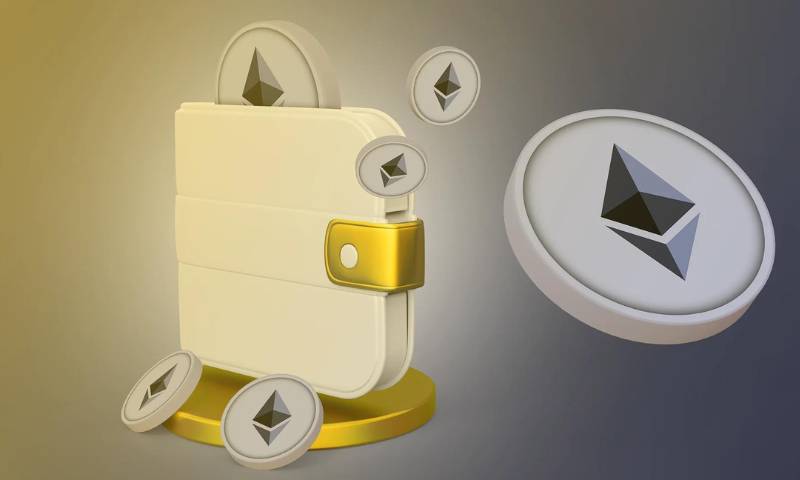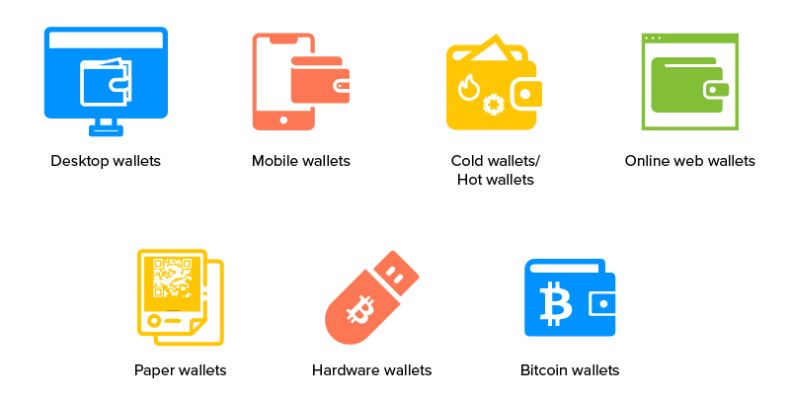Important Features to Consider When Choosing a Crypto Wallet: Your Key to Digital Wealth Security
As you dive into the digital currency pool, knowing the important features to consider when choosing a crypto wallet is crucial. Think of your crypto wallet as the vault for your digital gold; it needs to be secure, easy to use, and accessible, allowing you to sleep soundly while your treasure lies untouched. 아주는 security measures that bolt the door against hackers, types of wallets that suit your daily dealings, recovery options that save your digital skin, and the practicality that makes trading a breeze. Dive with me into the essentials of picking a wallet that not only guards your coins but also fits like a glove in your digital life.
Evaluating Security Measures in Crypto Wallets
Assessing Crypto Wallet Security Features
When you hunt for the best crypto wallet, security tops your list. Imagine a wallet as a safe. You want one that’s tough for bad guys to crack but easy for you to open. Crypto wallet security features matter. They keep your digital wealth safe. Think of them as guards at the vault door of your funds.
What should you look for? Start with two-factor authentication (2FA). It double-checks it’s really you using your wallet. You might enter a code or tap your phone. It’s like showing ID before entering a secure spot. Next, consider wallet backup options. What if you lose your phone? Make sure you can get back into your wallet from another device.
Understanding Wallet Encryption Standards and Multi-Signature Wallets
Now, let’s dive deeper into the techy stuff. Wallet encryption standards are big words for a simple idea. They scramble your wallet info so only you can read it. Think secret code that only you have the key to. With stronger encryption, it’s like a better secret code.
Multi-signature wallets need more than one key to open. It’s like a safety deposit box that requires two keys to unlock. This means more than one person or device approval is needed for access. Multi-signature adds more layers between your coins and the crooks.
Why does this matter? Whether you choose a hot wallet (online, easy access) or a cold wallet (offline, super safe), security is key. Hot wallets are handy for quick trades. Cold wallets are best for stashing coins you want to keep safe for a while.
Choose a hardware wallet for an extra security boost. They’re like personal vaults for your crypto keys. Pick a wallet with a user-friendly interface. This means it’s easy to use, even if you’re not a tech wizard. Check for mobile wallet apps. They let you manage your money on the move.
Watch out for transaction fees in crypto wallets. Pick a wallet that’s nice to your wallet. Make sure it works with your blockchain of choice. Check if it’s an open-source wallet software. This means anyone can check it for sneaky flaws. Decide between custodial (someone else holds your keys) and non-custodial (you’re the boss of your keys). Cross-platform accessibility is a must these days. It lets you access your crypto from various devices.
Updates for your wallet software should come often. It keeps your security tight. Need help? Customer support for wallets should be there for you. Make sure they’ve got your back. Look at all the token varieties supported. ERC20 token support means it’s flexible with different coins.
Skim wallet peer reviews for user insights. They tell you what’s hot and what’s not. Find a wallet with a simple setup and easy everyday use. Some wallets ask for your info (KYC requirements). Others don’t. Choose what fits your privacy needs.
HD wallet stands for Hierarchical Deterministic. They make fresh addresses each time you get coins. It’s like having a new safe every time you get paid. Check into cryptocurrency wallet insurance options. They can offer a safety net for your funds.
Finally, built-in trading and staking features keep things in one place. This might make managing your crypto easier and maybe even fun. Remember, strong security keeps your coins safe. Pick your crypto wallet like the digital treasure chest it is. Enjoy the peace of mind that your digital wealth is secure.
Distinguishing Between Wallet Types for Optimal Safety
The Pros and Cons of Hot Wallet vs Cold Wallet
When picking a crypto wallet, security is key. Hot wallets are online. Cold wallets are not. Each type has both good and bad points. Hot wallets make sending and getting crypto easy. They work on the web, so you’re always ready to trade. Yet, hot wallets can be open to attacks since they are connected to the internet. There is a trade-off between ease of use and safety.
Cold wallets, however, are like vaults. They store your crypto offline. This makes them very safe from hacking. But, they are not as quick to access as hot wallets. You might use them to keep crypto you plan to hold long-term. For daily trades, a hot wallet could be better. You could use both types. This way, you have safety and ease of use. But remember, each comes with risks and benefits. It’s crucial to balance them based on what you need.
Hardware Wallet Benefits and Secure Private Key Protocols
Security in crypto means protecting your private keys. These keys are like the password to your financial world. A hardware wallet keeps these keys offline, away from hackers. It’s like having a bank in your pocket. Yet, you must be careful. If you lose your hardware wallet or forget the pin, your crypto can be stuck forever. This is why it’s so important to know how to back up and recover your wallet.
Some hardware wallets have another security layer. It’s called multi-signature, or multi-sig. It asks for more than one key to open your wallet. This makes it much harder for thieves. It’s great for business or shared accounts.
However, hardware wallets can cost more than other types. They’re a small gadget you can connect to a computer or phone. They work with many types of crypto but check if they fit the ones you own. When used with care, they offer strong security for your digital coins.
Always research and weigh your options. Look for a wallet that fits your daily crypto needs and gives the security you want. Hardware wallets are a solid choice for many, but make sure it’s the right one for you.
In the end, your crypto’s safety hangs on the choices you make. Pick the wallet type that fits your life. But stay sharp. The world of crypto can change fast, and you need to keep up. Your digital wealth depends on it — and with the right wallet, you’ll be set for whatever comes.
Recovery and User Experience in Wallet Design
Implementing Two-factor Authentication and Wallet Backup Options
When picking a crypto wallet, two-factor authentication (2FA) is a must-have. Think of it like a double lock for your digital cash. With 2FA, even if someone gets your password, they can’t touch your coins without a second key. This might be a code from your phone or a fingerprint. It’s a simple step that adds a big layer of safety.
It’s also wise to look at wallet backup options. Good wallets let you make copies of your keys. These save you from losing your funds if anything goes wrong, like if your device gets lost or breaks. It’s crucial to have these backups stored safely. Some folks keep multiple copies in different spots, like a safety deposit box or with trusted family.
Wallet Recovery Process and the User-Friendly Interface of Decentralized Wallets
What happens if you forget your wallet password or lose your device? That’s where the wallet recovery process comes into play. Your wallet should offer a way to get back your funds in cases like this. Often, this process uses a recovery phrase. It’s a secret list of words that can restore your wallet. Write this phrase down and keep it secure.
Let’s not forget about user experience. A wallet’s interface should be clear and easy to use. Decentralized wallets are leading this charge. They let you keep control of your keys. No middleman means fewer steps and more direct action. These wallets should work smoothly on both computers and mobile wallet apps. You want your crypto journey to be hassle-free, right?
With these features, you’re set up not just for today but for any twists tomorrow might bring. Stay safe and happy trading!
Practicality and Accessibility of Crypto Wallet Solutions
Comparing Custodial versus Non-Custodial Wallets
When you pick a crypto wallet, think about control. Do you want to own your keys, or is a third party okay? If you lose your password, custodial wallets can help. They manage your keys. But with non-custodial wallets, you must take care. Lose your keys, and your coins are gone. That’s scary, right?
Still, many favor non-custodial solutions. They offer freedom and keep out prying eyes. Your coins, your rules – that’s the motto. But remember, with great power comes great responsibility. Keep your keys safe, or you risk losing your digital treasure.
The Importance of Cross-Platform Accessibility and Integrated Exchange Services
Next up, let’s talk about getting your wallet to work across devices. Can you trade on your laptop and check your balance on your phone? That’s cross-platform power! It means no gaps in managing your wealth. Choose wallets that let you switch devices without hassle. It’s about making life simple.
Integrated exchange services are a game changer, too. Want to swap Bitcoin for Ethereum without a headache? Wallets with built-in exchanges make it easy. They let you trade directly in the app. Say goodbye to moving funds around and hello to saving time.
Now, let’s take a breath. We’ve covered key stuff in choosing a wallet:
- Own your keys with non-custodial wallets, but don’t forget the risks.
- Pick wallets that you can use on any device for easy access.
- Make sure you can trade in your wallet to save time.
Get these right, and you’re set. You’ve got what you need to handle your crypto with care.
In this post, we dug deep into the safety of your digital cash. We looked at how crypto wallets stay safe with cool security stuff and secret codes that need more than one person to say “okay” to open. We also broke down the two main wallet kinds—ones that are all about being connected and ones that are not, sharing what’s good and bad about each. Plus, we saw how hardware wallets rock at keeping your private keys under wraps.
We talked about how to get your wallet back if stuff goes south and how some wallets are making it easy for you. It’s clear that whether you let someone else hold your crypto or do it yourself has big effects on your coin safety. Finally, we saw how being able to use your wallet in many ways and swapping coins right there can be a big win.
Staying smart about where you keep your crypto is key. Use this info to pick a wallet that’s right for you and keep your digital bucks safe!
Q&A :
What are the essential security features to look for in a crypto wallet?
When choosing a crypto wallet, security should be your top priority. Look for features such as two-factor authentication (2FA), multi-signature support, and robust encryption. Additionally, consider the wallet’s backup and recovery options, and whether it offers a secure PIN or biometric login.
How important is user interface and usability in selecting a crypto wallet?
User interface and usability are critical when selecting a crypto wallet, especially for beginners. The wallet should have an intuitive design that makes it easy to view your assets, perform transactions, and access security features. A good wallet will balance advanced features with simplicity to cater to both seasoned and novice users.
Does the choice between hardware and software crypto wallets matter?
Yes, the choice between hardware and software wallets is significant. Hardware wallets, such as USB devices, provide offline storage and are considered more secure against online threats. Software wallets, on the other hand, are more accessible and convenient, available as mobile or desktop applications. Your choice should depend on your security needs, asset portfolio size, and how often you transact.
What is the significance of wallet compatibility with different cryptocurrencies?
Wallet compatibility with various cryptocurrencies is essential for users who wish to manage multiple types of digital assets. Multicurrency or universal wallets allow the storage and management of different cryptocurrencies within a single interface, providing convenience and reducing the need to use multiple wallets.
How does the recovery process affect the choice of a crypto wallet?
The recovery process is a critical aspect of any crypto wallet, as it allows you to regain access to your funds if you lose your keys or password. Look for wallets that offer a secure yet straightforward recovery process, such as those utilizing seed phrases. Ensure that the process is well-documented and that there are clear instructions for safekeeping your recovery information.






